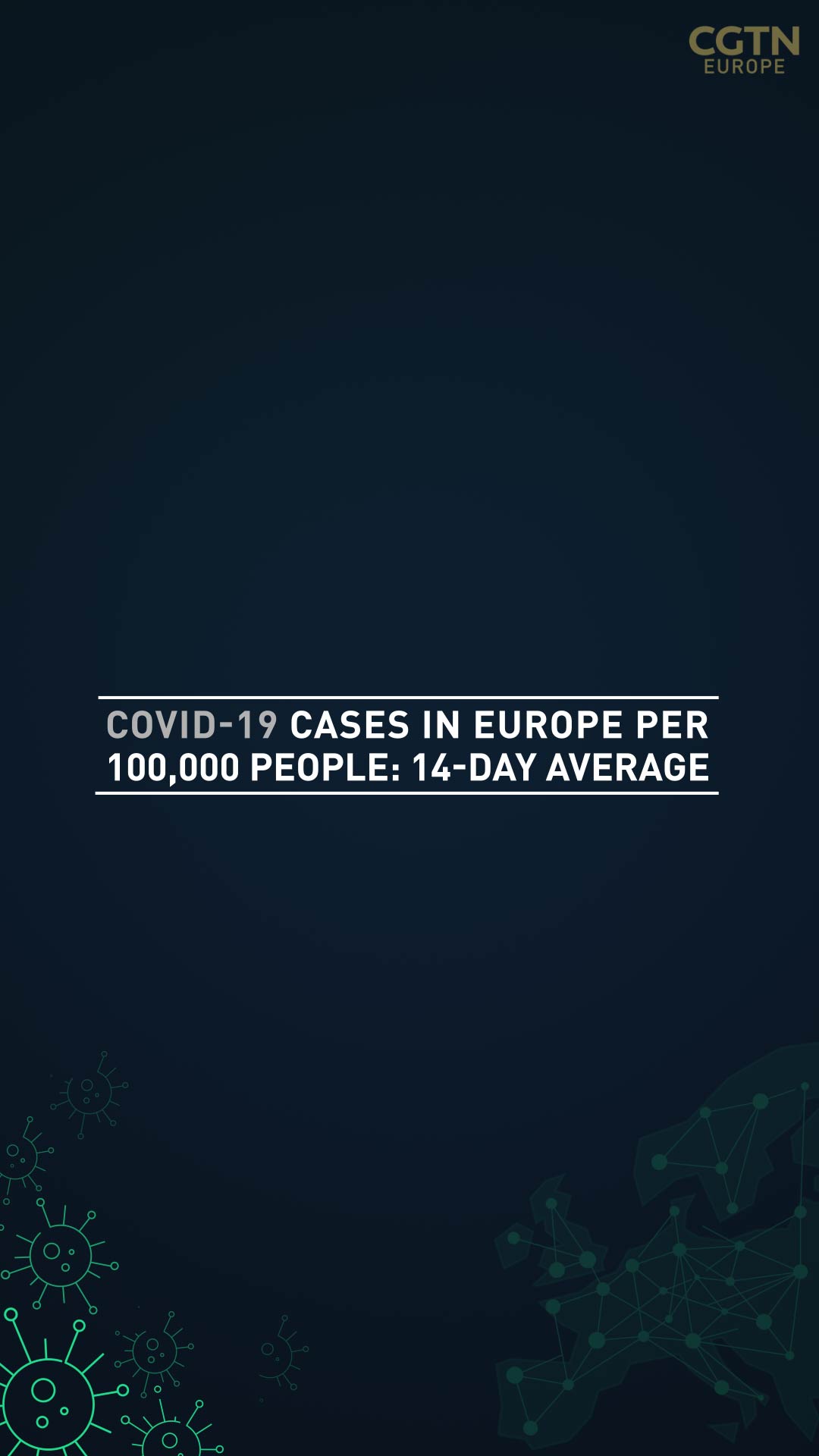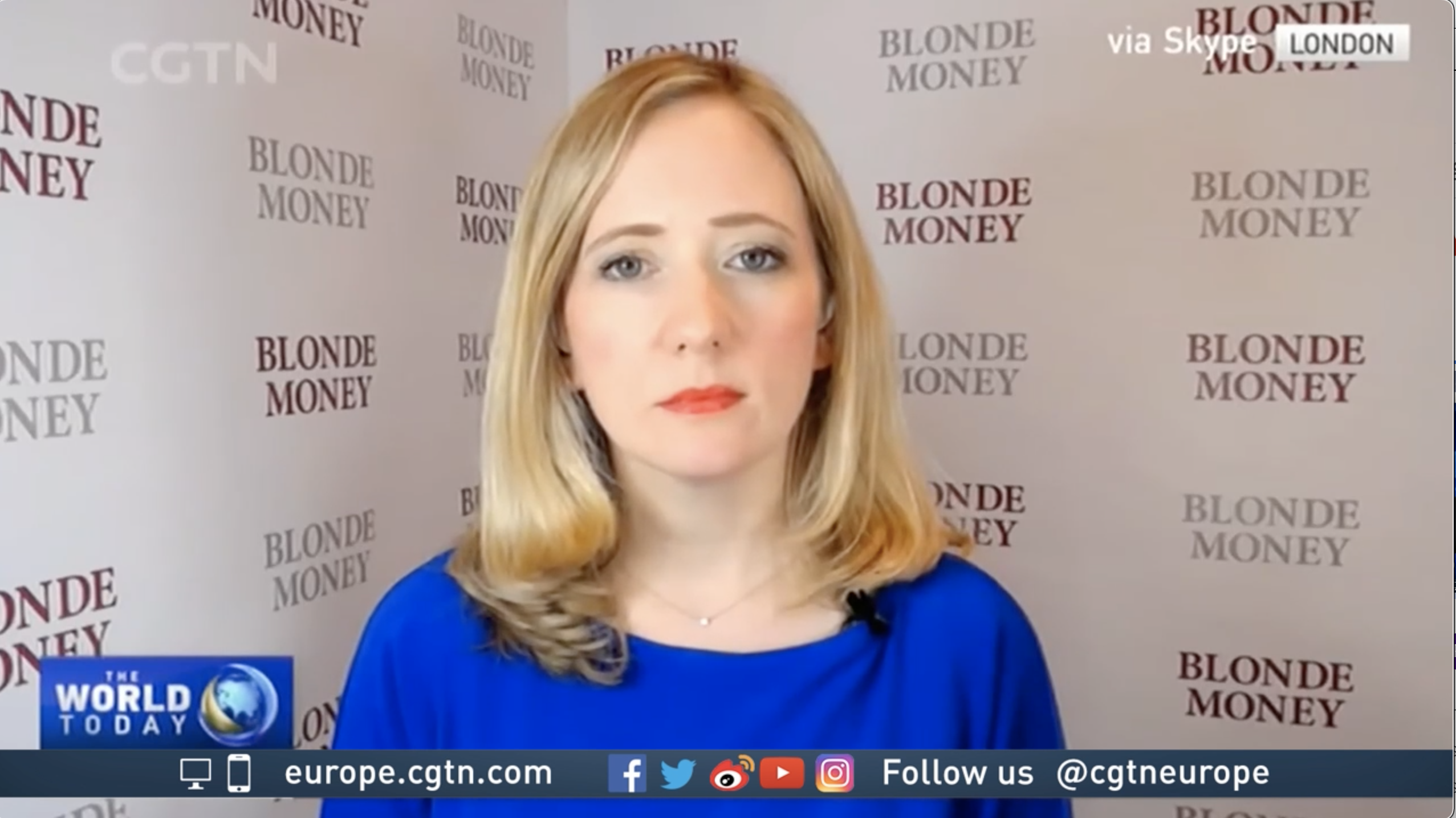
Christmas shopping in Rome's Via dei Condotti yesterday. /Vincenzo Pinto/AFP
Christmas shopping in Rome's Via dei Condotti yesterday. /Vincenzo Pinto/AFP
TOP HEADLINES
• London and parts of southeast England will be put under the UK's highest restrictions from Wednesday. "Over the last week we've seen very sharp, exponential rises in the virus across London, Kent, parts of Essex and Hertfordshire," Health Minister Matt Hancock told parliament.
• More than 1,000 cases of a new coronavirus variant have been identified in the past few days in England, Hancock also told parliament, while stressing that "there is currently nothing to suggest that the variant is more likely to cause serious disease" or "would fail to respond to a vaccine." The World Health Organization said there is no evidence the variant behaves differently.
• Sweden has hit an all-time high for patients hospitalized with COVID-19, said the country's state broadcaster SVT, with 2,389 in-patients. The official national health statistics body could not immediately confirm the calculation.
• The Netherlands will enter its toughest lockdown of the pandemic this week, with Prime Minister Mark Rutte expected to announce tonight that schools and non-essential shops will be closed for at least a month. Schools closed between March and May, but shops could stay open.
• Lithuania has told citizens to stay at home for three weeks from Wednesday except for work, essential shopping, caring for the sick, funerals and for people to take walks in single household groups. "There is no safe place in Lithuania," said Prime Minister Ingrida Simonyte. "Numbers are frightening and saddening."
• Italian police sealed off popular sites including Rome's Trevi fountain on Sunday after crowds flooded the streets, the day after Italy's COVID-19 death toll became Europe's highest at 64,520. Italy is now considering retightening restrictions over the Christmas period.
• Poland's Health Minister Adam Niedzielski will recommend current restrictions continue until at least mid-January, after talking to Prime Minister Mateusz Morawiecki and President Andrzej Duda. Schools, sports centers and restaurants closed last month.
• Russia is close to completing clinical trials for a COVID-19 vaccine for domestic animals and mink and expects to begin the regulatory approval process in February, said the national agricultural safety watchdog.
• Ski resorts in Catalonia have reopened after the Spanish region eased restrictions forbidding people leaving their home municipality. Alongside Switzerland and Austria, Spain is one of the few European countries that is allowing its slopes to reopen.
• Ireland may reimpose some restrictions in January, said Prime Minister Micheal Martin, after health chiefs warned cases may be rising again following the reopening of most of the economy in the last two weeks.
• Ukraine's total case number has passed 900,000, said health minister Maksym Stepanov. The government last week said it would introduce tight lockdown restrictions in January, having lifted a weekend lockdown on December 2.
• Spain should achieve herd immunity from COVID-19 by the end of summer 2021 if enough people are vaccinated by then, said Health Minister Salvador Illa, who hopes more than two-thirds of the Spanish population of 47 million will be vaccinated within "five to six months."

CLICK: TEN THINGS THAT WILL CHANGE IF THERE'S NO BREXIT TRADE DEAL
ACROSS EUROPE
Ross Cullen in Paris
Two mass-testing programs start today in Le Havre and Mezieres in northern France – the day before France plans to replace its national lockdown with a nightly 8 p.m. to 6 a.m. curfew.
Also on Monday, restaurateurs, hotel workers and bar owners will protest in major cities for more support. Finance Minister Bruno Le Maire has tried to reassure cafe and bistro owners of continuing financial aid but cannot guarantee the planned January 20 reopening of restaurants. Theaters, cinemas and museums were supposed to reopen tomorrow but infection rate remains too high, and Le Maire has promised to grant the cultural sector "everything it needs to get through this difficult time."
The French economy will recover less quickly than expected in 2021, according to the country's central bank. The Banque de France estimates that GDP will rebound by 5 percent next year, after a drop of 9 percent this year.
Stefan de Vries in Amsterdam
Prime Minister Mark Rutte will make a speech on Monday night after a recent rapid rise in infections. Rutte rarely gives formal statements from his office: the only previous time was the announcement in March of the "intelligent lockdown."
Tonight, he is expected to announce much stricter measures. All non-essential shops and public attractions such as museums and zoos will be closed. On Sunday, there were 9,924 new positive cases. The average amount of new infections last week was 8,078 per day, compared with 5,486 the week before.
The Netherlands has the third busiest rail network in the world, but despite an initial sharp increase this year, the railway company NS has transported 45 percent fewer passengers than in 2019.
00:20

Toni Waterman in Brussels
Belgium's first wave of vaccinations will be half as large as planned after Pfizer announced it can only deliver 300,000 doses by the start of January instead of 600,000, blaming a production-line problem. Belgium's federal health minister said he hoped deliveries would be back on schedule by February. The European Medicines Agency said it will issue an opinion on the Pfizer-BioNTech vaccine by December 29.
After weeks of decline, new cases of the coronavirus have edged up slightly in Belgium. The country averaged 2,231 new infections a day in the past week, an increase of 3 percent from the week before.
Linda Kennedy in Budapest
More than 2 million retired people are being sent letters with a pre-address response envelope, asking them to register for vaccines. The online version of vaccine registration has been up and running for a week.
The protected shopping time periods for over-65s have been suspended, at the request of the Council for the Elderly. Anyone can now shop at any time in supermarkets and pharmacies. The suspension of the measures – which had preserved 9 a.m. to 11 a.m. on weekdays and 8 a.m. to 10 a.m. at weekends for the over-65s – comes to avoid friction between younger and older people during shopping in the run up to Christmas.
The crowds are unjustifiable, irrational, irresponsible... business and health are not reconcilable at the moment
- Francesco Boccia, Italy's regional affairs minister
02:42

FROM OUR GLOBAL COLLEAGUES
CGTN Europe special: The Alps - Timeless and changing
CGTN China: Health centers water crisis increasing virus risk: WHO
CGTN America: Heated Brazilian discussions on whether vaccination should be mandatory
CGTN Africa: Eswatini PM dies after contracting COVID-19
Sign up here to get the COVID-19 Europe bulletin sent directly to your inbox.
CGTN Europe has been providing in-depth coverage of the novel coronavirus story as it has unfolded. Here you can read the essential information about the crisis.
Source(s): Reuters

